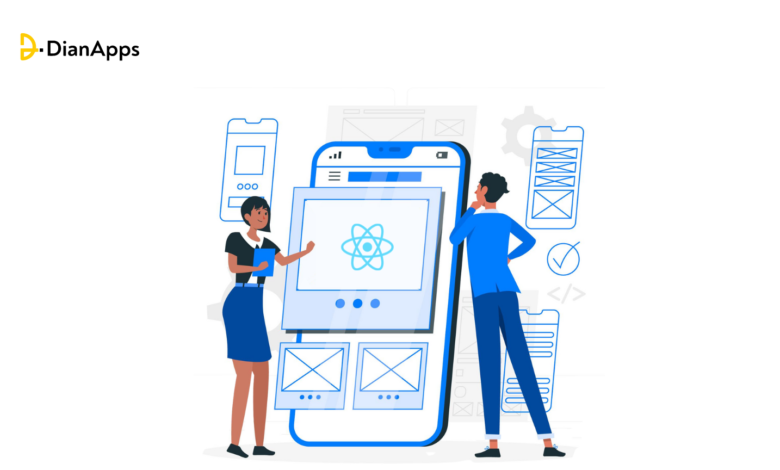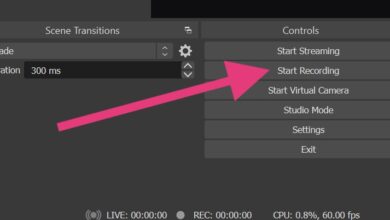10 Reasons Why Tech Companies Choose React native for Faster Time to Market

Developing native mobile applications can be time-consuming and might break the bank. If you want your app to exist on Android and iOS platforms, you will basically need to develop an app for both platforms. Well, that doesn’t mean that you have to create separate apps for both and double the work of developers. Rather you can now opt for cross-platform app development.
There comes the React Native app development framework – a fully open-sourced framework launched in 2015 and is now loved by a huge portion of the developer community and the world’s top tech giants. This is moreover a popular programming language written Javascript used on the web and mobile. Over 95% of React Native’s code is feasible for cross-platform development. This means that you need only one codebase to craft the app.
Furthermore, this blog aims to provide in-depth information about why React Native is a great choice among top tech companies. So let’s get started!
Why are tech companies using React Native over other frameworks?
Several major companies, including Meta (Facebook and Instagram), UberEats, Coinbase Pro, Words with Friends (Zynga), Shopify, and Pinterest, have embraced React Native for their mobile app development.
- Meta initiated the trend, leveraging React Native to streamline development and maintain performance for their Facebook and Instagram apps.
- UberEats sought efficiency in managing multiple dashboards, opting for React Native due to its web-first platform and ease of use.
- Coinbase Pro transitioned from native languages to React Native to accommodate the rapid growth of the crypto industry.
- Zynga’s Words with Friends 2 sought to modernize its framework, finding React Native suitable for its complex UI needs.
- Shopify made a bold move in 2019, fully adopting React Native for its mobile app, resulting in fewer crashes and a swift Android app release.
- Pinterest’s successful adoption of React Native enabled rapid prototyping and code sharing across iOS and Android platforms, showcasing the framework’s performance capabilities.
Overall, these transitions highlight React Native’s versatility and efficiency in addressing diverse development needs across industries.
Why should we choose React Native?
- Native-like Experience
React Native allows apps to perform like native apps, even though they’re built using a hybrid approach. Unlike traditional hybrid development, React Native components are compiled into the basic building blocks of native platforms, like Android and iOS. This means that React Native apps can meet the performance demands of mobile devices and run smoothly. As compared to other cross-platform frameworks, React Native apps perform faster, leading to quicker development and increased agility in getting your app to market.
- Live Reloading
Launching new features or making changes to existing ones can be time-consuming, especially when faced with the need for rapid iterations and revisions. React Native’s hot reloading feature streamlines this process by allowing mobile app developers to make changes to specific parts of the app without the need to reload the entire application. With hot reloading, developers can directly implement necessary changes while the app is live, significantly reducing deployment time and accelerating development iterations. This feature is particularly beneficial for startups and businesses with time constraints, enabling them to quickly implement revisions and deploy their apps faster.
- Reusable Codes for Fast Development
React Native makes it easy to reuse code, meaning you only have to update it once for both iOS and Android platforms. This simplifies bug detection between different parts of the code, making it easier for developers to understand and work on projects, even if they’re new to them. It also increases team flexibility and allows for quick updates to web apps without needing the core developer. With React Native, adapting to changes in custom mobile app development is seamless. Plus, QA engineers spend less time figuring out programming logic, which saves time and speeds up the process of turning a web project into a mobile app.
- Develop Complex and Advanced Applications
React Native enables developers to create complex and advanced app solutions efficiently. By leveraging its component-based architecture, developers can streamline the coding process and simplify the interface, resulting in faster app launches. The framework’s ability to break down complex algorithms into more manageable formats facilitates smoother development for developers.
- Works for Low Budgets
React Native’s open-source nature and cross-platform compatibility make it a cost-effective option for app development. With React Native, you can develop apps for multiple platforms using the budget allocated for a single platform. This simplifies the development process and ensures quicker releases while also saving on hiring and infrastructure costs. Additionally, there’s no need to invest in separate tools, devices, or developers for iOS and Android platforms, further reducing expenses.
- High-Quality Applicationscustom mobile app development
React Native provides a stable framework and a range of libraries that enable developers to create high-quality mobile apps quickly. With its robust coding capabilities and responsive interface components, React Native app development services ensures that applications are not only fast but also deliver excellent user experiences. Its ability to offer native-like experiences makes it easier to achieve desired outcomes efficiently.
- Support from 3rd Party Tools
React Native uses less memory and offers seamless integration with third-party plugins, eliminating the need for specific WebView functions. This means smoother performance, faster loading times, and reduced memory usage for your app. Additionally, since React Native directly connects with app features without using WebView, it runs smoothly on both iOS and Android platforms without the need for cross-bridge linking. Overall, these perks help speed up the development process and get your app to market faster.
- Excellent Support from the Community
React Native benefits from a strong and expansive community, which provides extensive support to developers. This community support is invaluable when encountering challenges during app development. Whether it’s seeking guidance on implementing APIs or plugins, the React Native community offers assistance and resources to overcome obstacles. Developed by Facebook, React Native enjoys a large and inclusive community, supplemented by numerous open-source contributors who actively contribute to its development and support.
- Develop Stable Apps
React Native facilitates the creation of stable apps through its simplified binding strategy within the codebase. Understanding the mobile app development process in detail and effectively managing state objects are essential for delivering stable and reliable applications. Stability is crucial, especially when deploying solutions across multiple platforms, ensuring consistency and reliability in the user experience. Implementing native APIs for rendering applications not only enhances stability but also improves performance, contributing to a seamless user experience.
- Enriched User Interface
React Native employs a declarative syntax, enabling developers to focus on writing code while the framework handles execution. This approach simplifies the design process by utilizing pre-built declarative components for building intuitive and visually appealing interfaces. Major tech companies such as Facebook, Instagram, and Microsoft Office utilize React Native to create scalable and feature-rich products, underscoring its capabilities for creating enriched user interfaces. Developers can use React Native’s tools and components, such as TouchableNativeFeedback and TouchableOpacity, to create custom components and ensure a responsive and platform-specific user interface.
React Native App Development Cost
React Native offers an affordable solution for businesses seeking to develop mobile applications efficiently. The cost of React Native app development typically falls within a range of $30,000 to $300,000, depending on various factors such as the complexity of the app, the inclusion of advanced features, and the integration of third-party services.
It’s important to note that the location of the React Native app development company also influences the overall cost. Development firms located in different regions may have varying rates, impacting the total budget for building the app.
Ultimately, the total estimation for React Native app development is determined by the specific requirements of your project. Factors such as the scope of functionalities, design complexity, and desired timeline all contribute to shaping the final cost of developing your mobile application.
Conclusion
In this article, we delved deep into React Native, a widely adopted JavaScript framework for cross-platform app development. Primarily utilized for mobile app development, React Native is favored for its user-friendly learning curve and open-source nature. Its ability to maintain a single codebase allows developers to expedite the mobile app development process and swiftly deploy applications to various application stores.
The mobile app development industry has evolved significantly, no longer solely reliant on innovative ideas. Success now depends on well-defined processes, careful planning, and clearly outlined interface elements right from the outset. Without proper planning, the probability of producing a application that fails to attract downloads is high. Thus, emphasizing the importance of thorough planning and strategizing in the mobile app development journey.





